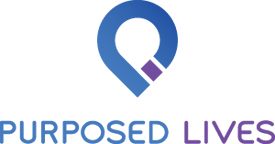 Perspectives have been the topic of the day for the past several weeks. I have been noticing when my perspective differs from others and when other people seem to have differing perspectives. What I have noticed is that it is not the differing perspectives that lead to problems, but when we cling to the rightness of our perspective and the wrongness of the other. When we are so attached to our position that we have a visceral reaction to the other it may be time to revisit how we are seeing things. Here are a few things I have noticed.
Perspectives have been the topic of the day for the past several weeks. I have been noticing when my perspective differs from others and when other people seem to have differing perspectives. What I have noticed is that it is not the differing perspectives that lead to problems, but when we cling to the rightness of our perspective and the wrongness of the other. When we are so attached to our position that we have a visceral reaction to the other it may be time to revisit how we are seeing things. Here are a few things I have noticed.
My husband and I were looking at movies to rent and another couple was doing the same. They were having a very loud conversation about each movie that they looked at. What struck me was the intensity of their conversation. Each movie was either a “yes, everyone should see this” or “no, no one should see this movie.” They had no middle ground and seemed quite attached to their perspective. The interesting thing is that if you had polled the people in the store you would have likely had a wide ranging group of perspectives about those same movies.
The thing that really got me thinking about perspectives happened a few weeks ago. I saw a political sign that jarred me. The intensity and my judgment about the underlying anger of the sign started me thinking about how we often become attached to our perpectives. In this instance, the sign voiced an opinion that was directly opposite of my beliefs, which in and of itself was not the problem. It was the tone of the sign, or more accurately, my interpretation of the tone of the sign that stirred things up for me. And, it has provided me with an opportunity to look at my judgments about many things.
There is a dance between holding and expressing our beliefs and making room for others to do the same without judging them harshly. This is a tricky one because it is so easy to slip into the duality of “I’m right” and “you’re wrong” without any room for truly listening. My goal is to be aware when I am so attached to my position that I end up judging the other person rather than agreeing to disagree.
The “then what” in the title of this blog refers to deciding how you want to be in a relationship with that other person. Are you going to let your perspective, which is so dramatically different from the other person’s perspective interfere with your relationship with them? Are you going to see them as wrong or as having a different perspective from you? Are you willing to agree to disagree without having to prove that you are right and they are wrong?
Even as I write this I know it isn’t as cut and dried as that, but it does bring to the forefront the idea that you can disagree and not personally attack or judge the other. These kinds of differences come up in every area of our lives. Some as simple as how or why you squeeze the toothpaste tube the way you do. Some as emotionally charged as why you back a particular political candidate.
I think the awareness of your perspective and how you view other perspectives is an ongoing opportunity to check in with yourself, to see what you really believe. I’m not sure there are any easy answers here. What have you noticed or remembered about your interactions with people when you have differing perspectives?

Comments are closed.